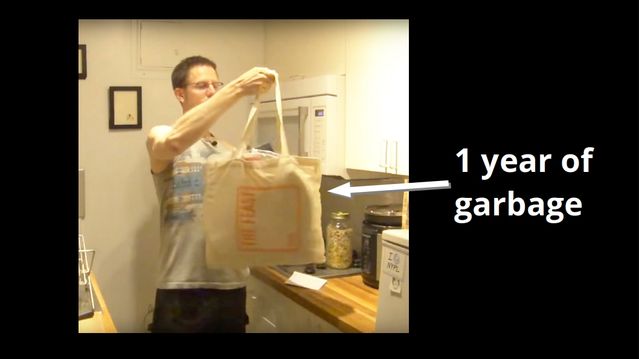Environment
What Everybody Gets Wrong About the Environment
...And how to get it right, part 1.
Posted November 8, 2019
My TEDx talk, "What Everybody Gets Wrong About the Environment," went live the day my Psychology Today column did with the same title. Here's the video, but I recommend reading the script for two reasons: It allows more reflection, and I left some parts out.
I'm going to tell you what nearly everyone gets wrong about the environment, how I found out, and how knowing clarified everything.
Food
I'll start at the start. I felt I grew up acting environmentally—at least as far as I knew. I turned off the lights and took subways. I grew up eating “regular” food. The more I learned about factory farming, though, the less I could stomach meat.
I grew up thinking I would die without it, but at 19 years old in 1990, I tried cutting it out. No long-term plan. I didn't think I'd make it. No one supported me. I just stopped eating it and found I liked my diet and life more.
A few years later, I did it with hydrogenated oil, a few years later, corn syrup and overly processed food. Each time, I expected my diet to taste worse and cost more, or that I'd fail.
But constraints bred creativity. I learned new ways to shop and cook, and my diet tasted better and cost less.
Five years ago, I noticed how much garbage I made and how much came from food packaging. Garbage is different than food. My garbage pollutes your world, so I felt ashamed. I couldn't think of what to do, so I felt helpless too.
I wondered, “Could I go without packaged food?”—not to fix everything, but to take responsibility for my actions. I don't not steal to stop others from stealing. I don't steal because I consider it wrong.
I consider me polluting wrong too. So I challenged myself to buy no packaged food for a week. Frankly, I thought I'd fail. I made it two and a half weeks—enough time to learn to cook from scratch and see my diet get more delicious, cheaper, more convenient, and more social, so I kept going. I found that vegetables don't take longer or cost more. Not knowing how to cook does.
I went from emptying my garbage weekly to monthly and kept going. I last emptied it in September 2018, and before that, July 2017.

Ninety percent less garbage is a breath of fresh air.
Flying
In 2015, I learned that flying New York to L.A. round-trip warmed the globe the equivalent of a year of driving. Without a car in Manhattan, I thought I polluted less, but flying put me over the Paris Agreement recommendations to keep warming below two degrees.

I grew up flying. My parents met in India. We lived a year of my childhood there. Between school, work, public speaking, family, and vacations, I flew to six continents and two dozen countries.
Flying meant family, food, culture, business, fun. It never occurred to me I had a choice. But learning about that level of pollution made me feel the shame and helplessness I did for my garbage.
Since my food and garbage experiments paid off, I thought to try a year without flying.
Now tell me if this inner monologue sounds familiar:
A year without flying? That sounds hard. How can I get out of this? I know: family! Who'd fault me for seeing Mom and Dad? And work! I have to eat.
That's it. What can I do? My hands are tied. I have to fly.
My mind came up with every other excuse, too—the plane would fly anyway; what I do won't matter; governments and corporations should act; planes should be solar; it's the engineers' fault. These were specious, fatuous mental gymnastics to rationalize acting against my conscience.
So I started. A week in, my sister invited me to join her family with round-trip tickets to Tokyo for $800. I thought, "I'll never see tickets that cheap again. I'll start after I get back." But then: “Do I want to live by my values or not?”
So I stuck with it. I had been negotiating to speak in Italy. I asked if they'd cover traveling by boat. They never wrote back.
Friends' travel stories filled me with envy. I felt like a chump, everyone benefiting from my sacrifice but me.
But constraints bred creativity. I learned to get the value and experience of travel without flying.
Why did I fly? Here are some reasons and how I got each.
I flew for culture. My mentor, Frances Hesselbein, lived through two World Wars, Prohibition, the Depression, and Vietnam. She's from as different a culture as Timbuktu. I visited her by subway and learned of her worlds, then found that cultural richness everywhere—shopkeepers, neighbors, everyone.
For family. My uncle died in Pittsburgh that year. Yes, a death in the family. This wasn't a game. Everyone wanted me to fly. Instead, I arranged to carpool with my sister, resulting in more family time and fewer emissions.
For work. I didn't speak in Italy, but a convention in Salt Lake City paid for a train. Not flying led to my invitation here, an earlier TEDx talk, a keynote next month, and other opportunities.
For adventure. I took a train to a conference in California. That adventure could fill hours, but some highlights: I wrote my book from sea to shining sea. I spoke at corporations and universities in Chicago, LA, Ventura, Houston, and Atlanta on the way. I lived, “It's the journey, not the destination.”

For cuisine. Buying from farmers led me to find local foods I'd never tasted: tomatillos, burdock, husk cherries, kabocha squash, lavender. I foraged juneberries and herbs as delicious as in the tropics—in Manhattan. Tasting wild mulberries, raspberries, blueberries, and cherry tomatoes felt like religious experiences I'd never known.
To meet people. Actually living the values others talk about, but few do, I believe helped establish myself as an authentic leader, which brought to my podcast and life a Nobel laureate, the most-viewed TED speaker, McKinsey's three-time Global Managing Director, an Olympic gold medalist, a Superbowl Champion, Generals, Fortune 5 executives, a Pulitzer winner, and more, as peers. And friends. Some came over for my famous. no-packaging vegetable stew. Others cleaned beaches with me.
For vacation. Wondering if I would leave North America again, I took sailing lessons—much cheaper than flying. The water is timeless, human-paced, and beautiful. When planning to sail from Florida to Mexico, most people asked where and when the trip would start and end. Sailors ask about the winds, tides, and currents. I prefer that world.
To experience nature. A friend's ecotourism business flies people up the Amazon in search of untouched nature. They're touching it! Their emissions destroy what they think they're stewarding. Meanwhile, not flying led me to start my window garden. My plants aren't a rainforest, but I touch them, nurturing nature, not destroying it.

I could go on about comfort, convenience, connection, and what I once got from flying that I get more of now. Everyone gets different things from flying. I created what I care about. Anyone who tries—you will create what you care about.
Constraints breed creativity. My life improved because of not flying, not despite it.
My challenge wasn't not flying. Anyone can not fly. We're all not flying now. The challenge is to create the experiences and values I thought only came from flying. That meant developing skills and expanding myself.
When I started, I knew day 366 I'd be on a flight, no question. By month three, I thought about a second year. Now I'm in year four. I may fly again, I don't know, but I want to less and less.
My lessons
Yes, some things only flying brings, but their value, meaning, and purpose aren't “out there.” They're “in here.”
I told hundreds of people about not flying. Overwhelmingly, they support it—for others, rarely themselves. Even my mom says, "Stop talking about not flying! You'll lose everyone. At most, talk about less meat." My dad hasn't foregone one flight.
I learned that a flight brought me to distant people. Flying, in general, made them distant. Flying creates a system that separates and pollutes. It doesn't create more time with people. It spreads us thin. That's why my parents aren't here. My mom's in France. My dad's in India.
I learned that the world is too big and beautiful to see everything and everyone. I learned to enjoy here, now, us, wherever I am.




